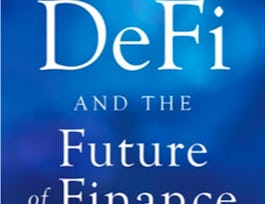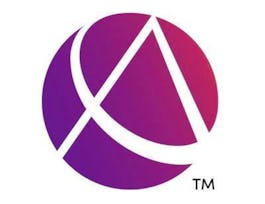DeFi and the Future of Finance is a set of four courses that focus on decentralized finance. The second course is called DeFi Primitives. It is recommended that you take the first course, DeFi Infrastructure, before this course. In this course, we talk about transaction mechanics and introduce both fungible and non-fungible tokens – or NFTs. The course explores the important issue of custody (holding private keys). The course then explores supply adjustment which includes the minting and burning of tokens. The mechanics of bonding curves are introduced. The course then explores the role of direct as well as indirect incentives in the DeFi system. We then analyze swaps or decentralized exchange. We begin by contrasting DEX with centralized exchange (e.g., Coinbase or Binance). The course details the mechanics of Automated Market Makers and provides a number of detailed examples. There is a discussion of impermanent loss as well as (legal) front-running. We end the course by exploring both collateralized and flash loans.



Decentralized Finance (DeFi) Primitives
This course is part of Decentralized Finance (DeFi): The Future of Finance Specialization

Instructor: Cam Harvey
19,178 already enrolled
Included with 
(411 reviews)
Recommended experience
What you'll learn
Token design and NFTs
Mechanics of supply adjustment
Decentralized exchange
Details to know

Add to your LinkedIn profile
4 assignments
See how employees at top companies are mastering in-demand skills

Build your subject-matter expertise
- Learn new concepts from industry experts
- Gain a foundational understanding of a subject or tool
- Develop job-relevant skills with hands-on projects
- Earn a shareable career certificate


Earn a career certificate
Add this credential to your LinkedIn profile, resume, or CV
Share it on social media and in your performance review

There are 4 modules in this course
The first module explores some key primitives such as how Ethereum transactions occur including the differences between externally owned accounts and contract accounts. We then explore fungible and non-fungible (NFT) tokens and miner extractable value.
What's included
3 videos1 reading1 assignment
The second module focuses on supply adjustment (minting and burning), the atomic nature of transactions in Ethereum, as well as incentives. The concept of a keeper in the Ethereum ecosystem is introduced.
What's included
3 videos1 assignment
The third module introduces decentralized exchange and explores in considerable detail Automated Market Makers. The module also introduces the idea of collateralized loans as well as uncollateralized flash loans.
What's included
5 videos1 assignment
The final module shows step-by-step how to set up a MetaMask wallet allowing the student to join the world of DeFi. The second part of the module conducts a deep dive into some of the key blockchain concepts such as digital signatures and consensus mechanisms (including Proof of Stake).
What's included
7 videos1 assignment
Instructor

Offered by
Recommended if you're interested in Finance

Duke University

Duke University

The State University of New York

Association of International Certified Professional Accountants
Why people choose Coursera for their career




Learner reviews
Showing 3 of 411
411 reviews
- 5 stars
88.13%
- 4 stars
10.89%
- 3 stars
0.48%
- 2 stars
0%
- 1 star
0.48%
New to Finance? Start here.

Open new doors with Coursera Plus
Unlimited access to 7,000+ world-class courses, hands-on projects, and job-ready certificate programs - all included in your subscription
Advance your career with an online degree
Earn a degree from world-class universities - 100% online
Join over 3,400 global companies that choose Coursera for Business
Upskill your employees to excel in the digital economy
Frequently asked questions
Access to lectures and assignments depends on your type of enrollment. If you take a course in audit mode, you will be able to see most course materials for free. To access graded assignments and to earn a Certificate, you will need to purchase the Certificate experience, during or after your audit. If you don't see the audit option:
The course may not offer an audit option. You can try a Free Trial instead, or apply for Financial Aid.
The course may offer 'Full Course, No Certificate' instead. This option lets you see all course materials, submit required assessments, and get a final grade. This also means that you will not be able to purchase a Certificate experience.
When you enroll in the course, you get access to all of the courses in the Specialization, and you earn a certificate when you complete the work. Your electronic Certificate will be added to your Accomplishments page - from there, you can print your Certificate or add it to your LinkedIn profile. If you only want to read and view the course content, you can audit the course for free.
If you subscribed, you get a 7-day free trial during which you can cancel at no penalty. After that, we don’t give refunds, but you can cancel your subscription at any time. See our full refund policy.

